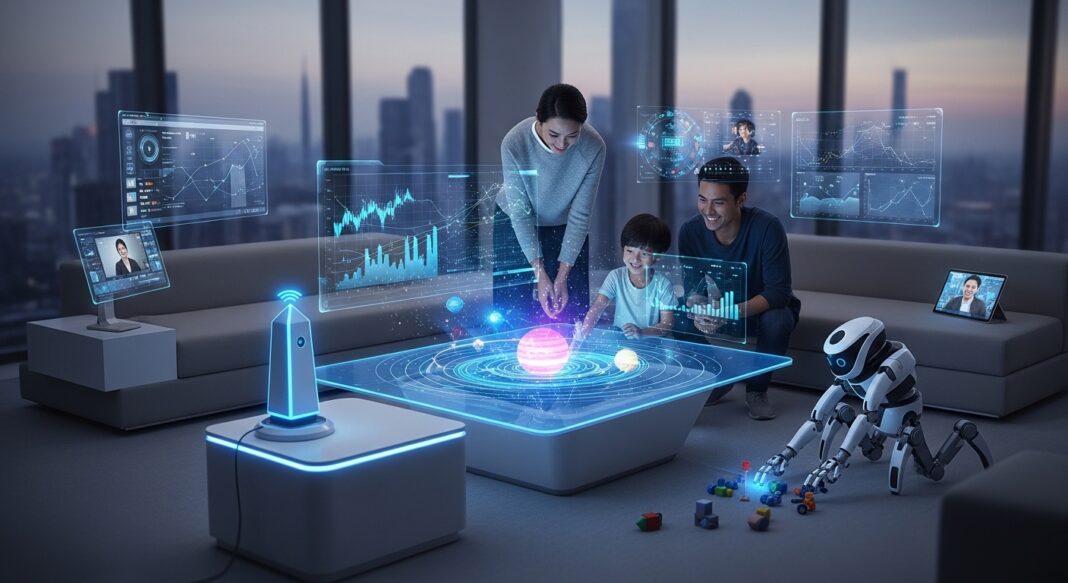Artificial Intelligence was once just science fiction. Today, it’s reshaping how we live, work, and interact. From smart homes to personalized healthcare, AI in everyday life is no longer optional—it’s essential.
Whether you’re asking Alexa for weather updates or getting tailored shopping suggestions, AI quietly powers it all. As we move through 2025, the influence of AI continues to expand across industries, improving convenience, accuracy, and efficiency in unprecedented ways.
The Rise of AI in Daily Routines
AI is now a silent partner in our daily decisions. Smart assistants like Siri, Alexa, and Google Assistant help manage schedules, play music, and even control your home’s temperature. These tools use natural language processing to understand and predict user needs.
Furthermore, AI chatbots handle everything from food delivery to banking queries, making customer service faster and more accessible. They operate 24/7, learning from every interaction to improve future responses.
Clearly, we’ve moved from asking, “What is AI?” to “How did we live without it?”
AI in Healthcare, Shopping, and Security
AI isn’t just about convenience—it’s revolutionizing critical sectors too.
In healthcare, AI-driven tools assist doctors with faster diagnoses, robotic surgeries, and predictive health monitoring. Wearable devices like smartwatches use AI to detect irregular heartbeats or track sleep cycles, giving users real-time health updates.
When it comes to shopping, AI enhances user experiences through hyper-personalized product recommendations. Algorithms study browsing behavior and purchase history to suggest exactly what you need—sometimes before you even know it yourself.
Security systems have also advanced dramatically. AI-powered cameras now recognize faces, detect unusual activity, and send instant alerts. Consequently, homes and businesses are becoming safer and more connected.
How AI is Changing Workplaces in 2025
The workplace of 2025 looks vastly different, thanks to AI integration. Repetitive tasks are automated, freeing employees to focus on creativity and strategy. For instance, AI handles data analysis, report generation, and even recruitment screening.
Collaboration tools now come with AI-powered features like meeting transcription, voice translation, and automated scheduling. These innovations improve productivity while reducing the mental load on teams.
Although some fear AI replacing jobs, many roles are simply evolving. Upskilling and adapting to this shift is key for professionals across industries.
Future Potential of AI in Everyday Life
Looking ahead, AI will only grow more intuitive. We can expect even smarter homes that anticipate needs, AI tutors that personalize education, and autonomous vehicles that learn in real time.
Moreover, AI will likely support sustainability goals by optimizing energy use, reducing waste, and streamlining transportation.
As AI continues to integrate into every facet of life, ethical development and responsible use will be critical. Transparent algorithms, data privacy, and inclusive AI training must remain top priorities.
Conclusion: AI Is No Longer the Future—It’s the Now
Artificial Intelligence is no longer a luxury or a futuristic concept. It’s deeply woven into our routines—from morning alarms to late-night binge-watching. With every passing day, AI in everyday life becomes more seamless, more powerful, and more personal.
As long as we prioritize ethical AI development and stay adaptable, this tech revolution promises a smarter, safer, and more connected future for all.

